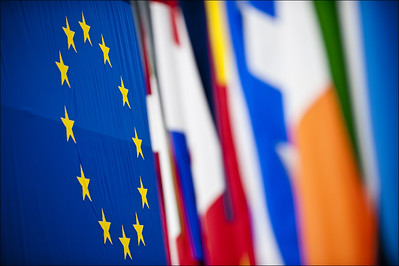Most keen observers internationally believed that the first shock events that the planet would experience would result from the climate crisis. In fact, it was the flip side of that same coin, the ecological crisis, that created this shock Covid-19 is not a natural disaster. It originates from is driven by the incessant need for growth and the “compete or die” logic of capitalism.
The optimistic view that the virus will burn itself out by the end of next year clearly has no scientific basis. Vaccine inequity will make it likely that more deadly mutations of the virus will emerge in the global south, and with increasing ability to escape the efficacy of vaccines. Currently, 66 countries will fail to meet the stated target of vaccinating 40 percent of their populations; 44 of them are on the African continent.
Just as importantly, fragile public health systems in Africa have been further weakened by the pandemic. It is increasing the high burden of disease and in doing so deeply undermining our ability to minimise the mounting death toll. In South Africa this figure is now around 250,000, according to the most accurate measure – when the calculations of “excess deaths” by the South African Medical Research Council is combined with the official figure of 90,000.
Covid will continue to haunt us for years to come. The fourth wave, with its present epicentre in Europe, has higher levels of infection than previously seen, although significantly lower death rates and hospitalisation among the vaccinated. We will require more than the jab to contain this and the pandemics to come. That said, access to vaccines and new treatment remains of paramount concern.
Spread by capitalism
Those nations which have built the capacity to develop vaccines, medical treatment and equipment against chronic illness have over the past 50 years handed over intellectual property (IP) rights to medicines to companies that have become major international corporations. These big pharmaceutical companies have learnt that bumper profits can only be obtained from drugs for which lucrative markets exist for daily dosing. This inbuilt logic has acted as a brake on biomedical innovation for those diseases which are harder to monetise.
Vaccines by nature are usually a one-off dose. So big pharma has not shown any significant interest, unless of course the state has been willing to enter the picture with huge amounts of public finance to de-risk the operation, as with Covid-19. Thus, while innovation today is largely pioneered by universities and state-financed research institutions, the IP generated is being handed over to locally owned big pharma. This is at the direct expense of global public health security. Governments in rich nations increasingly see the role of the state to first and foremost nurture the competitive ability of their own industrial base.
These public-private partnerships have been buttressed by the IP regimes introduced by the World Trade Organisation in the mid 1990s. Its rationale is simple: commodify health; turn the delivery of public health into a business, and in doing so grant big pharma the right to determine who lives and who dies. The Trade Related Aspects of Intellectual Property (TRIPs) agreement is a deeply flawed neoliberal instrument that has stifled innovation and inflicted harm of genocidal proportion on the world’s poor. Therefore, the call for a temporary TRIPS waiver on Covid vaccines and medicines by South Africa and India has gained significant momentum. We must use the moment and get behind the call for the TRIPS waiver. If we can win the battle around the waiver, our long war to obtain access to medicines will stand a greater chance of victory.
Covax: another failed PPP
Covax is another private-public partnership, established to ensure “fair and equal distribution of Covid-19 vaccines”. Its objective is for each country to be able to access 20 percent of its total needs from a common pool. High- and middle-income countries would pay top dollar for vaccine supply, so low-income countries could obtain their own supplies for free.
The project failed miserably. The involvement of Pfizer, Moderna and Johnson and Johnson was voluntary, as was the participation of countries. In fact, those companies sought out the highest bidders with the fiscal resilience to make pre-orders (advanced market commitments). Richer nations in the process bought half of projected global supply for 2021 before it was produced, often over-ordering. In short, hoarding left Covax starved of necessary supply. The vast majority of the world’s population were left to fend for themselves.
The initiative was championed by Bill Gates, the IP warrior from his days at Microsoft and now the single largest philanthropist in the health sector. And he insisted from the get-go that massive government investment in Covid vaccines could not undermine IP rights. Profits are estimated at $25 billion for Pfizer and not much less for Moderna and Johnson and Johnson. Meanwhile the “not-for-profit” AstraZeneca jab has arguably been deliberately sabotaged by the club of rich nations.
Like the COP process over the last decade, Covax was dominated by massive corporations and the club of rich nations, big pharma’s agenda and the agencies and governments who support them. A cameo role was reserved for the rest of the world. This ensured that there was no substantial progress towards bringing about the vaccine equity so critical to the suppression of the global pandemic.
With HIV it took eight years before we gained access to antiretroviral drugs that were readily available to wealthier nations. The consequence was the unnecessary loss of 10 million lives.
Most of the world’s peoples will not see their countries obtain sufficient vaccine supplies until late 2022 or early 2023 at best.
Ecological crisis threatens health
Like most other emerging diseases, Covid is a zoonotic virus – a disease transmitted from animals to humans. This itself is a direct result of the ecological crisis that has been maturing.
The most important vector of such viruses has been big agriculture, and in particular factory farming of animals. Despite years of alarm bells rung by many public health experts, public health care systems had a glaring lack of capacity, a consequence of decades of underinvestment. This has rendered most states unable to confront such outbreaks.
In the global south, spending on healthcare has been actively blocked by big financial institutions such as the IMF and World Bank, leaving continents like Africa largely defenceless in the face of pandemics.
Nothing less than a comprehensive and universal public healthcare system is required if we are to limit the death toll. HIV, TB, Ebola, HN51 and Covid have taught us this lesson the hard way. The threat of disease is now inescapable. Pandemics present and future, combined with rising temperatures, will intensify the public health crisis and foster deeply political struggles.
The socialist response
We have an obligation to present a clear vision of what is required to contain the Covid-19 pandemic. The absence of any alternatives to the mainstream Social Democratic and Communist parties and the wider trade union movement internationally is glaring. Progressive science with a small “s” now provides a framework for both climate and health crises. We cannot ignore science, particularly where scientists have collectively come to clear conclusions. But we also must critically engage it, interrogate its assumptions, because it does not operate within a societal vacuum.
Climate Justice puts the people most affected by the crisis at the centre of the solution. Health Justice must do the same. We need a planet that is fit to live on. Cataclysmic events have been unfolding around the world for the last few years. For us in Southern Africa, the destruction wrought on Mozambique’s second largest city, Beira, and the severe damage to 240,000 homes in the city and beyond stand out as a warning of what is to come.
Our guiding star is that nothing less than system change is required for long-term protection against the negative impacts of the climate and ecological crisis presently unfolding. We hold to a notion of deep and just transition to a society that is based on democratic planning. Guided by the science, we understand the priorities to reduce carbon emissions.
At the heart of solution is the radical shift away from the individual and the private to the collective. In doing so we can take society in a democratic and rationally planned direction.
This will require, among other things, the public ownership of energy, the massive expansion of public transport, water, housing and land as public goods, and the expansion and support of small-scale farming. In the context of the pandemic and rising temperatures, unfettered access to medicines and a single comprehensive and universal health care system. These are some of the critical shifts required. Others include an immediate end to deforestation, the wholesale scaling back of big agriculture, the ending of the factory farming of animals.
Breaking the power of big pharma patent monopolies on medicine would herald the first step in that direction.
Rehad Desai is a South African documentary filmmaker. His latest film has just been released, entitled Time of Pandemics and is freely available for organisations to utilise. A version of this article was first published in Amandla! Magazine in December 2021.




